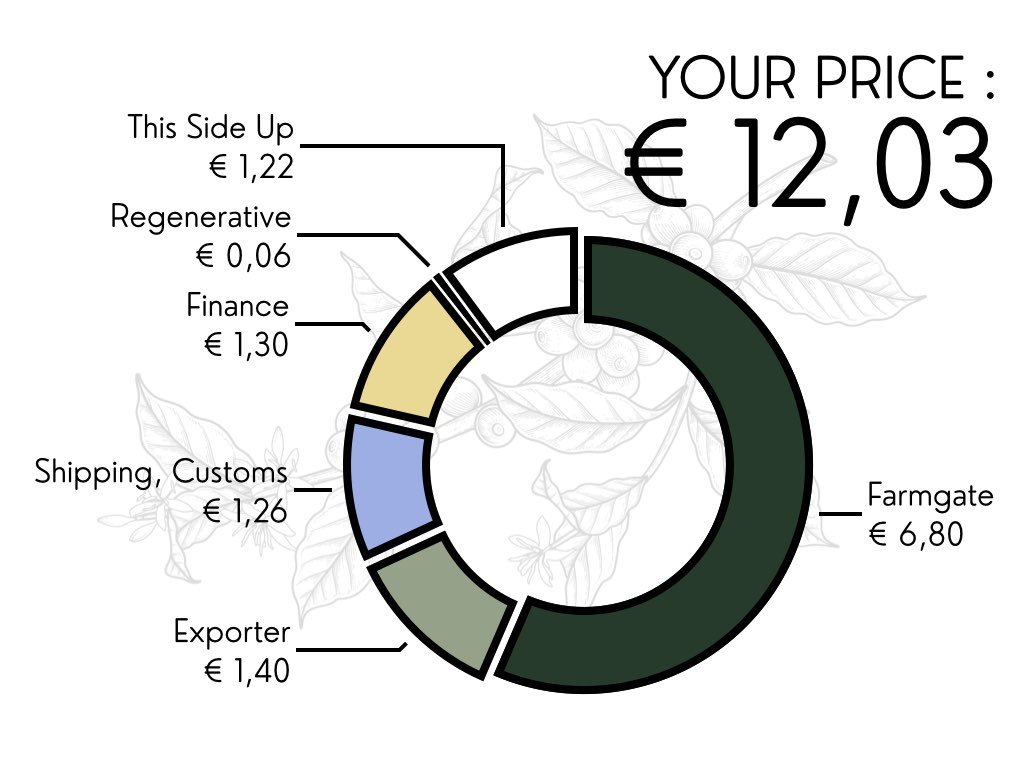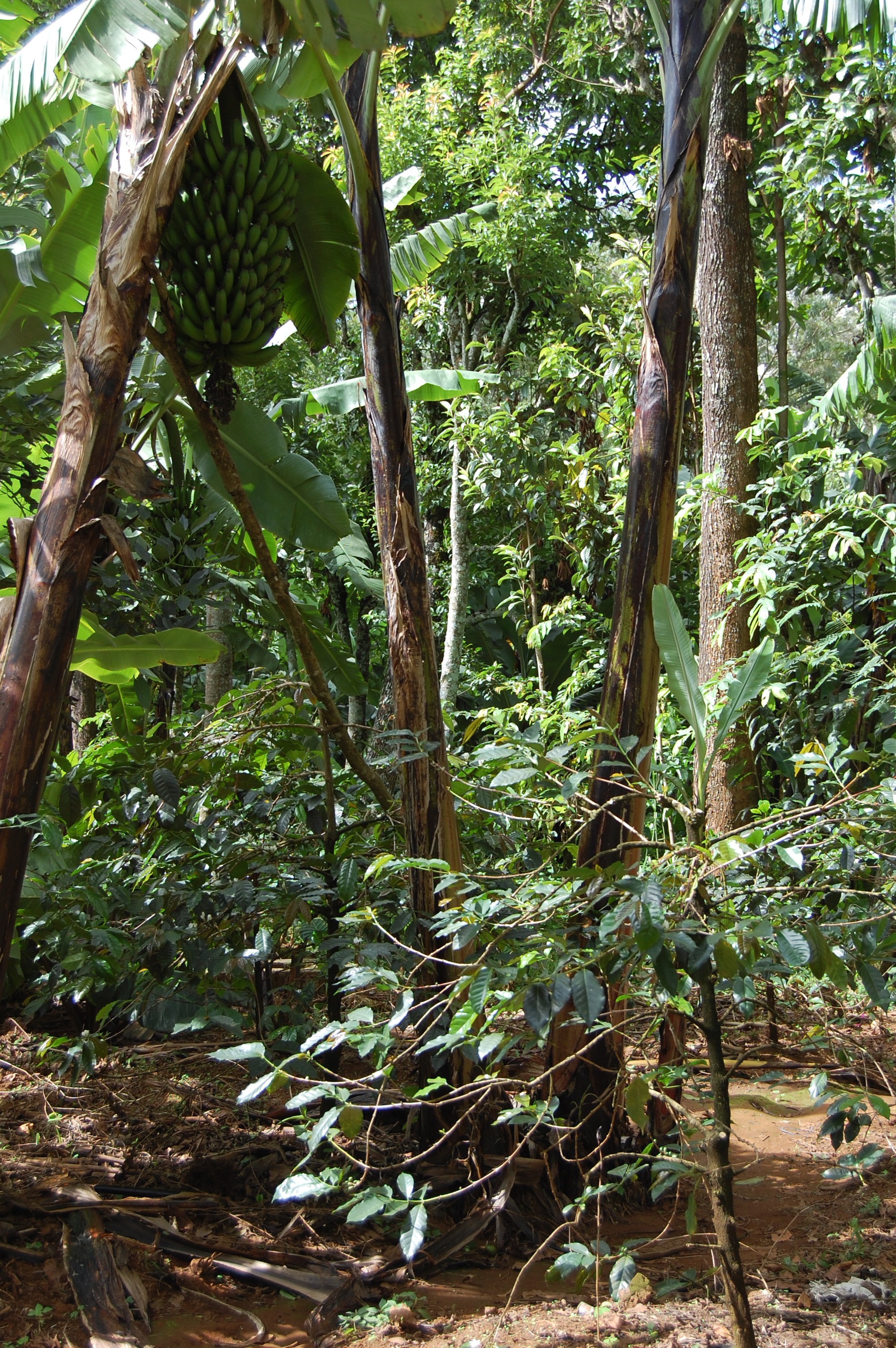the relentless pursuit
In 1999, in Mwika, a small village on the slopes of Mt. Kilimanjaro, 150 farmers harvested and processed their own coffee at home and then brought the parchment to the group headquarters. In 2001, with the help of Technoserve's capital, they built the first Central processing unit. Started with 69 members, now the group remains with 45 of them who have a special status of a "coffee group" instead of a cooperative which is the expected norm in Tanzania. Other than climate change, the lack of youth participation questions the long term sustainbility of coffee production in this region. Despite this, the older farmers still continue to experiment in different ways including using cattle for both manure as well source of fuel for cooking among other things which keeps the group fairly active and competent.
Wanza was trying to get them on board but it was never in the cards until Frank directly was in contact with the chairman learning about their victory streak at the quality championship. Frank realized that despite winning quality championships, they were not getting paid enough nor higher than their peers for all of their efforts. They were forced into a corner running out of options of a fair compensation. It was either selling it via the auction or letting the quality deteroirate .Now with Wanza by their side there came access to This Side Up and the international market. With fair compensation for their coffees, the group continues to build dreams for the future, such as upgrading their CPU, to renovate their office and equipment as well as opening a fund for members to help them afford agricultural inputs.
CULTIVARS
Bourbon, Jackson Bourbon
elevation
1,600 - 1,750 meters above sea level
NOTABLE
Several smallholder farmers came together to better control the quality of their product and commercialize it to the international market. Over time, they’ve proved to be very good businessman and committed coffee growers..
PROCESSING
Cherries are brought to a central pulper where they are depulped, soaked over night and floated using raised channels and set out to dry on raised beds. The group runs a central washing station equipped with both depulper and drying beds.
TASTIFY™ CUPPING NOTES
2025 HARVEST
-
The price you pay for Amkeni coffee p/kg. We agreed on this price directly with the farmers, disregarding the volatile US Coffee C price.
-
Here the farm gate is what the farmer gets for delivering the cherries to the Central Processing Unit owned by the Amkeni group. This sum is inclusive of what the farmer and group gets for delivering parchment to Wanza, the exporter.
-
Wanza is responsible for a number of activities between the coffee at origin to Rotterdam. This fee per kg includes their salaries, farmer training and development fee, Business expenses that include travelling to visit the farmers, local taxes, Warehousing, dry milling and Sampling as well shipping to the nearest port for export
Other coffees in this portfolio for which the exporter fees are as follows :
Amkeni Washed Peaberry: € 1,49
-
International shipping from Dar es Salaam to Rotterdam, Netherlands. It is inclusive of freight, customs, insurance and warehousing costs.
-
Average financing cost owed to (mostly social) lenders. This ensures immediate payment to the farmers when the coffee leaves the farm or port.It also includes storage, risk fee, storage and profit
-
A standard TSU premium on all coffees designated exclusively to accelerate farmers’ own regenerative agriculture project
-
This Side Up compensation for spending time and resources importing this coffee. Our work includes year-round contact with producers, managing export, shipping, import, warehousing, grading, sampling, finding and keeping roasting partners for Amkeni. € 1,22 is This Side Up’s Model 1 markup. For a full overview of our modular margin construction, see the Trade Models page.
It is worth noting that coffees have a different price since we are trying out different grades for the first time this season. And even though the farmers were paid the same farm gate for the all grades, in reality the differences can be taken from the TSU margin.
CONTACT WANZA
Wanza can be reached by email or by phone. Rebecca or Frank are also happy to have visitors to show around their coffee farms and host in their village, close to the city of Arusha and to numerous national parks
TEL +1 (615) 200 9209 / +255 713 838 181
EMAIL mlayff@gmail.com/ wanzacoffee@gmail.com
Photo gallery
You may use these images freely to promote Amkeni’s coffee amongst your customers.






































